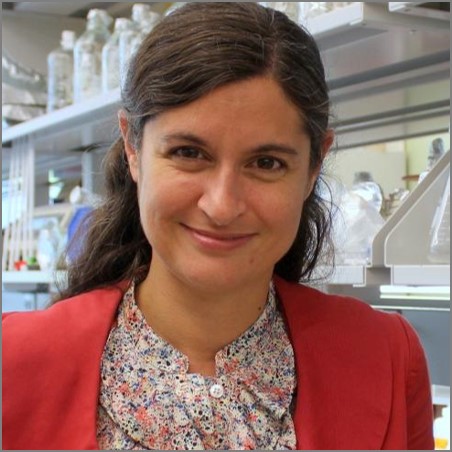
Susanne Ahmari, MD, PhD
Dr. Ahmari is an Assistant Professor in the Department of Psychiatry at University of Pittsburgh, and Director of the Translational OCD Laboratory. She is affiliated with the Translational Neuroscience Program and the Center for the Neural Basis of Cognition.
After graduating from University of Illinois at Urbana-Champaign with Bachelor of Science degrees in Biochemistry and Honors Biology, Dr. Ahmari entered the MD-PhD program at Stanford University. For her PhD, she used advanced microscopy techniques to examine mechanisms underlying synapse formation in the laboratory of Dr. Stephen Smith. After completing the MD-PhD program, she performed internship and residency in psychiatry at the Columbia-Presbyterian Medical Center.
Dr. Ahmari graduated from residency in 2007, and began her NIMH-sponsored research fellowship in Affective and Anxiety Disorders under the mentorship of Dr. Rene Hen and Dr. Blair Simpson. In July 2010, she received a K08 Award from NIMH to develop translational research approaches in Obsessive Compulsive Disorder (OCD), and became an Assistant Professor of Clinical Psychiatry at Columbia University. During her K08, she pioneered the use of optogenetics to dissect neural circuits underlying OCD-relevant behaviors (Ahmari et al, Science, 2013). In October 2013, she moved to her current position at University of Pittsburgh.
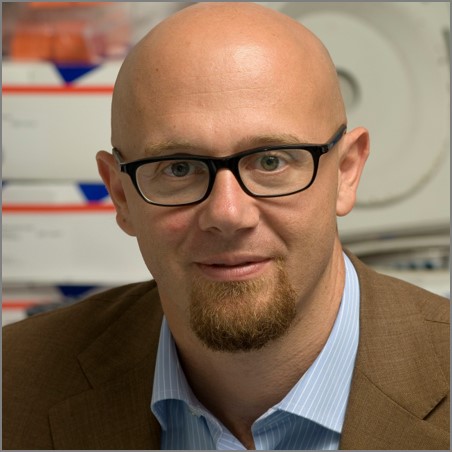
Alberto Auricchio, MD
Alberto Auricchio, MD is Professor of Medical Genetics at the Department of Advanced Biomedicine, “Federico II” University in Naples, and Coordinator of the Molecular Therapy Program at Telethon Institute of Genetics and Medicine (TIGEM) in Pozzuoli (NA), Italy.
His research is focused on gene therapy of retinal and metabolic diseases using adeno-associated viral vectors. His group has contributed to the phase I/II clinical trial of Luxturna, the first approved gene therapy drug for an ocular disease, and to the development of gene therapy for mucopolysaccharidosis VI up to an ongoing phase I/II trial.
Prof. Auricchio is co-author of more than 140 peer-reviewed publications on international scientific journals and inventor of several international patents on the use of viral vectors for gene therapy. He is a member of the editorial boards of various journals and of the scientific advisory boards of several companies in the area of in vivo gene therapy. Prof. Auricchio serves as a member of the European Society of Cell and Gene Therapy Executive Board and is founder of InnovaVector.
Prof. Auricchio has received the Outstanding New Investigator Award of the American Society of Gene Therapy, the International Prize for Scientific Research “Arrigo Recordati” and the Consolidator and Advanced Grants from the European Research Council.
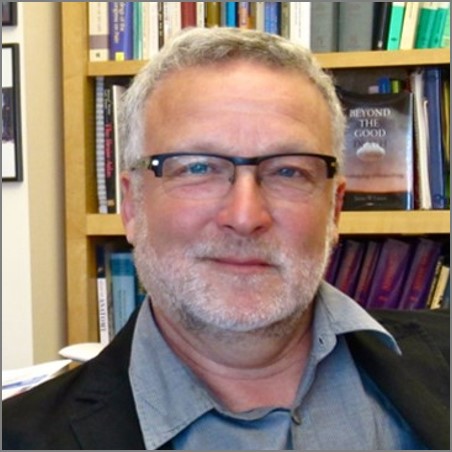
Allan Basbaum, PhD
Allan Basbaum completed undergraduate studies at McGill University in Montreal, his PhD at the University of Pennsylvania and postdoctoral research at University College London. Presently, he is professor and chair of the Department of Anatomy at the University of California, San Francisco. His research focuses on peripheral and central nervous system mechanisms that process pain and itch messages, including the molecular mechanisms that contribute to chronic pain after tissue or nerve injury. He has served as Editor-in-Chief of PAIN, the journal of the IASP, treasurer of the IASP, is a member of the American Academy of Arts and Sciences, the National Academy of Medicine, the National Academy of Sciences and is a fellow of the Royal Society in the United Kingdom. He is presently a member of NINDS Council and the HEAL Initiative panel.
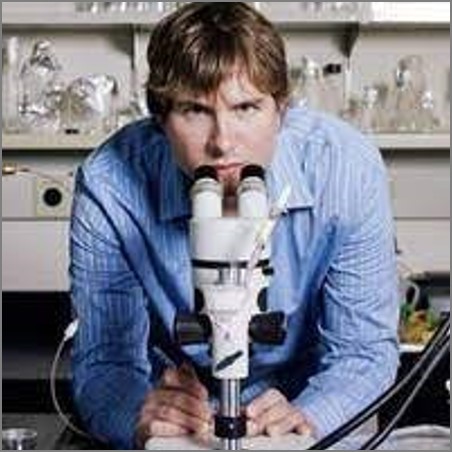
Mark Budde, PhD
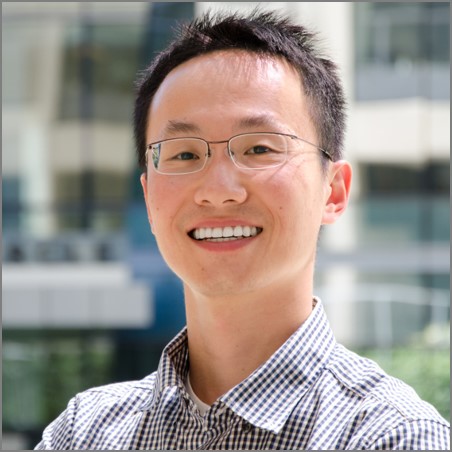
Ying Kai Chan, PhD
Ying Kai Chan is Visiting Scholar at Wyss Institute and Blavatnik Fellow at Harvard Business School, both Harvard University. Previously, he served as Chief Scientific Officer of Ally Therapeutics, which he co-founded with George Church, and worked on gene therapies for ophthalmic and neuromuscular disease indications. Prior to that, he was a Principal Investigator at Harvard Medical School and led projects on AAV gene therapy, mRNA vectors and live attenuated vaccines. He received a PhD in Microbiology and Immunobiology and a Certificate in Human Biology and Translational Medicine from Harvard Medical School.
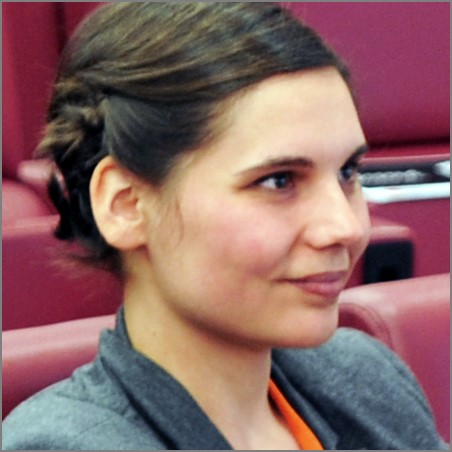
Denis Dalkara, PhD

Beverly Davidson, PhD
Dr. Davidson is the Chief Scientific Strategy Officer (CSSO) at the Children’s Hospital of Philadelphia, as well as the director of the Raymond G. Perelman Center for Cellular and Molecular Therapeutics. She holds the Arthur V. Meigs Chair in Pediatrics at CHOP. Dr. Davidson is a professor of pathology and laboratory medicine at the University of Pennsylvania. Dr. Davidson is a member of the American Association for the Advancement of Science, American Federation for Clinical Research (Midwest Section), American Society for Neuroscience, American Society for Gene and Cell Therapy, and the American Society for Microbiology. Dr. Davidson serves on the Board of Directors for the American Society for Gene Therapy, and is Associate Director of the Center for Gene Therapy for Cystic Fibrosis and other Genetic Diseases, and is past Co-Director of the Iowa Biosciences Advantage Program. Dr. Davidson serves on the scientific advisory boards for the NCL Foundation (Hamburg, Germany), Stanford Institute for Neuro-Innovation and Translational Science Core Facilities and Hereditary Disease Foundation. Dr. Davidson additionally has served on editorial boards for Gene Therapy, Molecular Therapy and EMBO Reports.
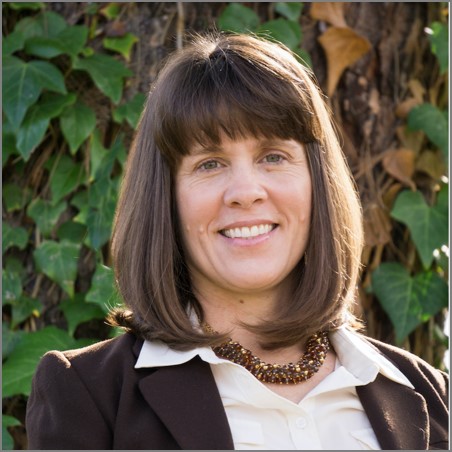
Tracy Dixon-Salazar, PhD
Dr. Dixon Salazar serves as the executive director of the Lennox-Gastaut Syndrome (LGS) Foundation, with extensive qualification to the position and is an accomplished neuroscientists, geneticist, and decades-long epilepsy and rare disease patient advocate. Driven by her daughter’s diagnosis of LGS, and the life-long challenges that ensued, Tracy obtained her bachelor’s degree and then pursued a PhD in neuroscience. She went on to conduct post-doctoral work in neurogenetics at the University of California, San Diego. After leaving the research lab to help translate the findings of the clinic, and following her tenure as Associate Research Director at CURE epilepsy, Dr. Dixon-Salazar joined the LGS foundation in 2017. Serving as Director of Research and Strategy, Tracy implemented a strategic research vision, helped build collaboration across the epilepsy and rare disease communities, and advanced the mission of understanding the science behind LGS.
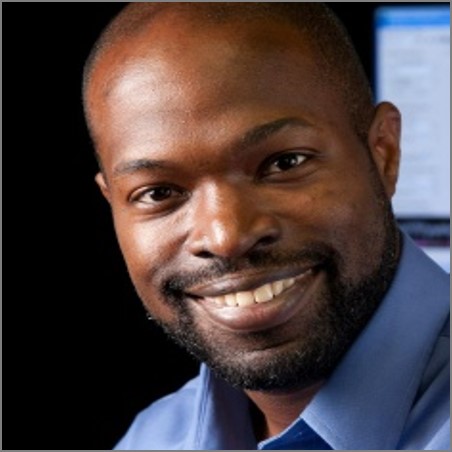
Kafui Dzirasa, MD, PhD
As the first African American to complete a PhD in Neurobiology at Duke University, psychiatrist Kafui Dzirasa is pushing the limits in more ways than one. His research is focused on rethinking the framework that currently dictates the way we diagnose, view, and treat mental illness. Through his work, Kafui hopes to reveal links between brain circuit malfunction and symptoms of mental illness, with the ultimate goal of producing neuroelectrical stimulation remedies for these diseases. Kafui is currently an associate professor in the Department of Psychiatry and Behavioral Science at the Duke University School of Medicine. In 2008, he was recognized as one of Ebony Magazine’s 30 Young Leaders of the Future and his laboratory has been featured on CBS 60 Minutes. He also shared his work at TEDMED 2016 and is a member of TEDMED’s Editorial Advisory Board.
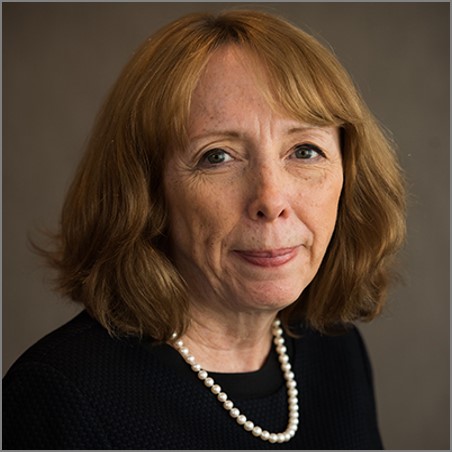
Kathy Ferrara, PhD
Dr. Ferrara is Professor of Radiology and Division Chief of the Molecular Imaging Program at Stanford University. She previously served as the founding chair of the Department of Biomedical Engineering at UC Davis. Dr. Ferrara is a member of the National Academy of Engineering and a fellow of the American Association for the Advancement of Science, Institute of Electrical and Electronic Engineers, Biomedical Engineering Society, Acoustical Society of America, World Molecular Imaging Society and American Institute of Medical and Biological Engineering. Her publications include 300 manuscripts in the area of image-guided drug and gene delivery. Her laboratory has recently developed optical and positron emission tomographic methods to track AAVs and other viral vectors and characterize their interactions at the molecular, cellular and organ levels.
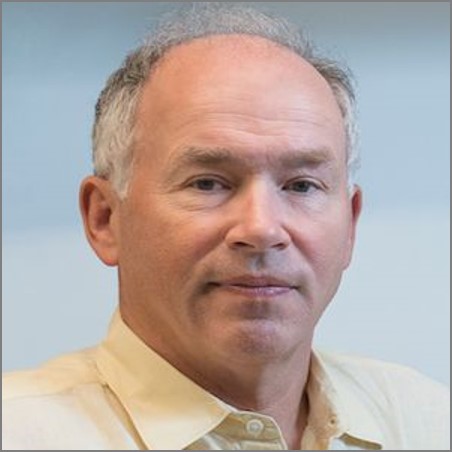
Gordon Fishell, PhD
Gord Fishell is an institute member and group leader in the Stanley Center for Psychiatric Research at Broad Institute and a professor of neurobiology at Harvard Medical School.
Fishell is a developmental neurobiologist interested in how the architecture of brain circuits is assembled, with a special focus on the diverse populations of inhibitory interneurons that are found within the cortex. His lab identified the origins of these cells and studies how their integration into circuits leads to the initialization of brain function. In addition, his laboratory was central in discovering the molecular mechanisms by which interneuron diversity emerges during development. His current focus is on explaining how a common set of interneurons can integrate into a wide variety of brain structures with distinctly different organizations and functions. Moreover, Fishell is currently exploring the relationship between developmental gene expression in GABAergic and cholinergic populations and identifying associated risk genes for neurodevelopmental disorders including autism spectrum disorder.
Fishell was previously the associate director of the New York University (NYU) Neuroscience Institute, Julius Raines Professor of Neuroscience and Physiology at NYU, and director of the graduate program in neuroscience and physiology at the NYU School of Medicine. He completed his Ph.D. in neurobiology from the University of Toronto and conducted postdoctoral research at Columbia University and the Rockefeller University.
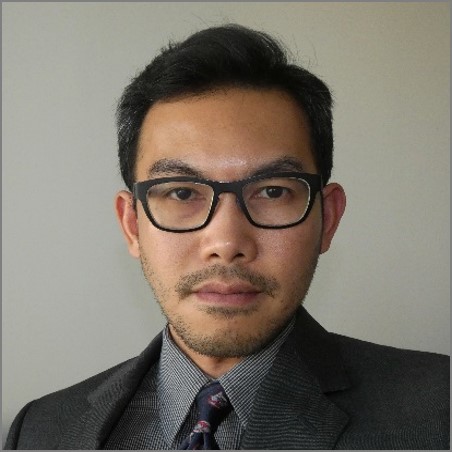
Feorillo Galivo, MD, PhD
Feorillo Galivo is a Pharmacology-Toxicology Reviewer in the Division of Clinical Evaluation and Pharmacology/Toxicology (DCEPT) at the Office of Tissues and Advanced Therapies (OTAT) in the Center for Biologics Evaluation & Research (CBER) at FDA. Dr. Galivo is responsible for regulatory reviews of CBER INTERACT (Initial Targeted Engagement for Regulatory Advice on CBER Products), pre-IND, IND, and BLA submissions of OTAT-regulated biologics including cellular, tissue, and gene therapy products. Prior to joining the FDA, Dr. Galivo had conducted postgraduate research in virology, immunology, and cell and gene therapy.
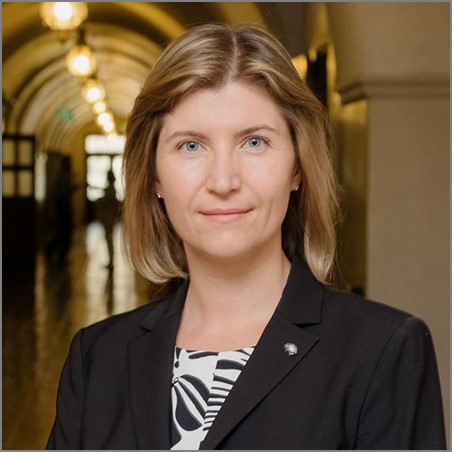
Viviana Gradinaru, PhD
Dr. Viviana Gradinaru completed her B.S. at Caltech and her Ph.D. research at Stanford University and is now a Professor of Neuroscience and Biological Engineering at Caltech. Prof. Gradinaru has more than 75 publications in top peer-reviewed journals and more than 10 granted patents, additional pending, in areas of optogenetics, viral vectors, and tissue clearing and imaging. Prof. Gradinaru has received the NIH Director’s New Innovator and Pioneer Awards and a Presidential Early Career Award for Scientists and Engineers, and has been honored as a World Economic Forum Young Scientist. Gradinaru is also a Sloan Fellow, Pew Scholar, Moore Inventor, Vallee Scholar, and Allen Brain Institute Council Member, and received the inaugural Peter Gruss Young Investigator Award by the Max Planck Florida Institute for neuroscience. In 2017 she was the Early-Career Scientist Winner in the Innovators in Science Award in Neuroscience (Takeda and the New York Academy of Sciences); in 2018 she received a Gill Transformative award; in 2019 Gradinaru was a Life Sciences Finalist for the Blavatnik National Awards for Young Scientists; and in 2020 she was the winner of Science Magazine & PINS Prize for Neuromodulation and awarded: the Vilcek Prize for Creative Promise in Biomedical Science; the Outstanding New Investigator Award by the American Society of Gene and Cell Therapy; and the Society for Neuroscience Young Investigator Award.
Professor Gradinaru teaches undergraduate and graduate level classes on viral biology and optogenetics techniques in neuroscience. Viviana Gradinaru has also been very active in technology dissemination, participating with lab members in regular technology training workshops at Caltech and for summer courses at Cold Spring Harbor Laboratory as well as founding and now advising the CLOVER Center (Beckman Institute for CLARITY, Optogenetics and Vector Engineering), which provides training and access to the group’s reagents and methods for the broader research community (awarded Addgene Blue Flame for reagent dissemination). Gradinaru is also a cofounder and board member of Capsida Biotherapeutics, a fully integrated AAV engineering and gene therapy company.
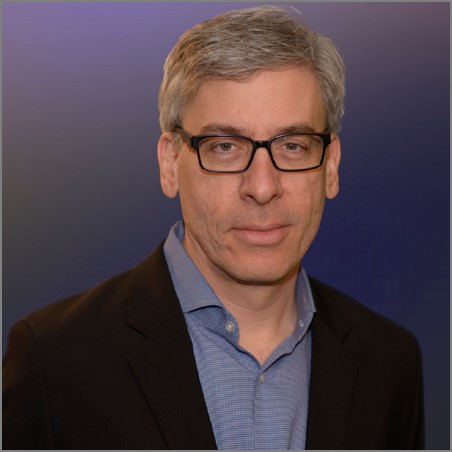
Bob Greenberg, MD, PhD
Dr. Greenberg is the Executive Chairman of The Alfred E. Mann Foundation for Scientific Research, an independent non-profit medical device incubator committed to developing and commercializing innovative solutions for significant unmet or poorly met medical conditions.
Dr. Greenberg was previously CEO and Chairman of Second Sight Medical Products (EYES), a company he led as CEO from its inception in 1998 through 2015. Under Dr. Greenberg’s leadership, Second Sight, which Dr. Greenberg co-founded while working at the Alfred E. Mann Foundation, successfully developed and marketed an implantable retinal prosthesis, the Argus II, the world’s most advanced implantable neural stimulator, which restores useful vision to patients blinded by Retinitis Pigmentosa, allowing them to achieve greater independence. He oversaw the FDA approval, unprecedented outpatient Medicare reimbursement of approximately $150k, with sales rising to a $10M annualized run-rate, and a successful IPO on NASDAQ, with a $550M market cap at the end of his CEO tenure. More recently, while Chairman at Second Sight, Dr. Greenberg oversaw the successful development and human implantation of a wireless cortical visual prosthesis, the Orion, which has the potential to eliminate nearly all forms of blindness.
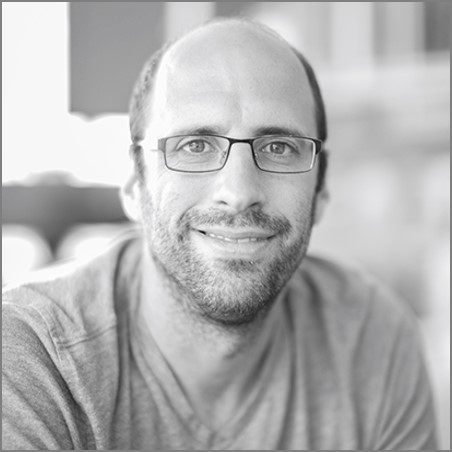
Adam Hantman, PhD
Adam Hantman is currently a Group Leader at the Janelia Research Campus of the Howard Hughes Medical Institute. In the fall, the Hantman laboratory will be moving to the University of North Carolina at Chapel Hill. The Hantman lab focuses on the neural dynamics that underlie control of skilled actions. The lab combines genetics, anatomy, physiology, and behavior in order to understand how precise and accurate motor actions are learned and executed. Efforts thus far have focused on circuits and dynamics in the brain. However, full understanding will require following the fate of descending information into the spinal cord. We believe that a spinal cord connectome would provide deep insight into this question. as well as many other matters of sensory processing, sensorimotor transformations, and motor output.
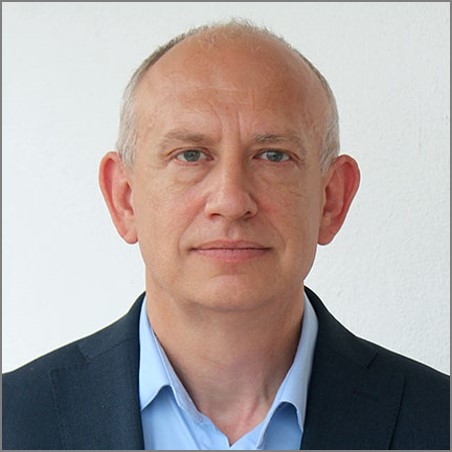
Paul Heppenstall, PhD
Paul Heppenstall is Professor at SISSA (International School for Advanced Studies), Trieste and founder of Borea Therapeutics. He has been working in pain research for more than 25 years and has made contributions to spinal cord physiology and pharmacology, sensory mechanotransduction, and peripheral nervous system biology. His research has uncovered novel molecular targets for treating pain, and he has been at the forefront of efforts to generate new genetic mouse models for studying pain mechanisms. This in turn has led to the development of ligand-based targeting technology, which allows for directed gene therapy in subsets of sensory neuron.

Petra Kaufmann, MD
Petra Kaufmann is the Chief Medical Officer of Affinia Therapeutics, a gene therapy company using innovative technology to overcome the limitations of current AAV therapies.
Prior to joining Affinia, Dr. Kaufmann was Senior Vice President, Clinical Developoment, Translational Medicine & Analytics at Novartis Gene Therapies (formerly AveXis), following many years of clinical research in academia, and at the National Institutes of Health (NIH) where she held leadership roles of increasing responsibility, most recently as Director of the Office of Rare Diseases Research.
Dr. Kaufmann earned her M.D. at the University of Bonn, and her M.S. in Biostatistics at Columbia University where she also trained in neurology and served as tenured faculty member, advancing research and caring for patients.
Dr Kaufmann continues to hold an adjunct appointment at Columbia University, and also is an adjunct Professor of Neurology at the University of Rochester. She has served on scientific advisory boards of numerous national and international organizations and her research has resulted in over 130 publications.
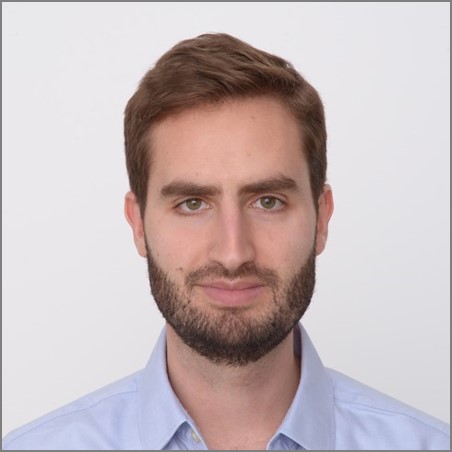
David McMullen, MD
David McMullen is Program Chief, Neuromodulation and Neurostimulation (A3-NSNM) Program, Adult Pathophysiology and Biological Interventions Development Branch, National Institute of Mental Health (NIMH). Dr. McMullen’s portfolio includes invasive and non-invasive device-based approaches to treat a variety of mental health indications such as depression, OCD, anxiety, schizophrenia, amongst other disorders. He oversees device development and biomarker discovery grants as well as clinical trials ranging from first-in-human to pivotal studies intended to obtain FDA regulatory approval. Dr. McMullen also leads Team C in the NIH Brain Research through Advancing Innovative Neurotechnologies (BRAIN) Initiative stimulation and helps oversee programs focused on next-generation invasive device development, new tools for non-invasive neuromodulation, and neuroethics. Dr. McMullen serves as the NIMH point of contact to the FDA for devices and has served as a consultant to the FDA Neurological Devices Panel. Prior to joining NIMH in 2016, he was a Senior Scientist at Fulcrum, where he provided support to DARPA’s Biological Technology Office (BTO). Dr. David McMullen is a neuroscientist and medical doctor with clinical neurosurgical training from Johns Hopkins University. His program of research focuses on improving brain-machine interfaces by incorporating novel electrode designs and intelligent robotics to increase motor control and language production. Dr. McMullen received his BS in Psychology and Neuroscience from Duke University, his MD from Rutgers Robert Wood Johnson Medical School, and completed his neurosurgical internship and a Howard Hughes research fellowship at Johns Hopkins Hospital.
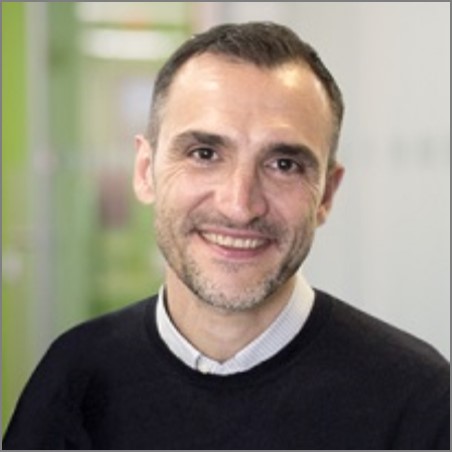
Federico Mingozzi, PhD
Dr. Federico Mingozzi is the Chief Scientific Officer of Spark Therapeutics. He obtained his his bachelor’s degree in biology and his Ph.D. in biochemistry and molecular biology from the University of Ferrara, Italy. He spent several years in academia at the Children’s Hospital Philadelphia (CHOP), in the United States, and the French National Institute of Health and Medical Research (INSERM) and Genethon, in France. He served as faculty at the Pierre and Marie Curie University in Paris, France, and Universitat Autonoma de Barcelona, Spain. Throughout his career, he contributed to several preclinical and first-in-human clinical studies of gene therapy based on the AAV vector platform. He also conducted fundamental studies on the immunology of gene therapy.
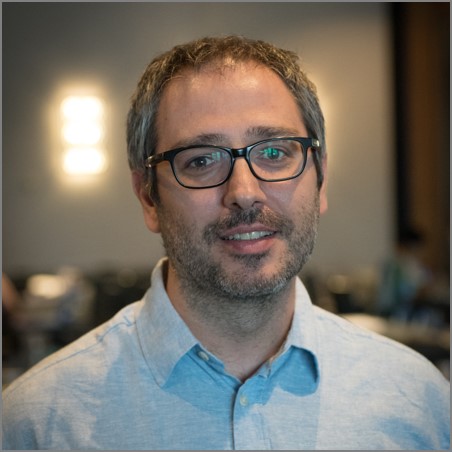
Alex Mas Monteys, PhD
Alejandro Mas Monteys is a Research Assistant Professor at the Department of Pathology and Laboratory Medicine at the University of Pennsylvania. He has been working in the laboratory of Dr. Beverly Davidson, first as a Post-doctoral fellow and later as a senior scientist, on developing novel molecular therapies and strategies to improve some of the weaknesses of existing therapies for human brain diseases. His work has been key to establish RNA interference as one of the leading therapeutic strategies for Huntington’s disease (HD). He also developed a novel allele specific CRISPR/Cas9 gene editing approach that offers an exciting extension of gene editing applications for HD and other human diseases by taking advantage of polymorphisms localized to a disease allele for editing. Recently, he developed a drug-inducible spliced system that uses an orally available small molecule to control gene expression. This novel expression system can be applied to any gene, and will improve existing gene therapy approaches. He received a PhD in Biochemistry and Molecular Biology from the Universitat Automoma of Barcelona.
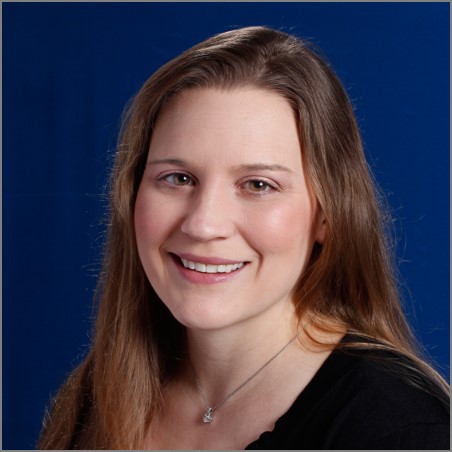
Jessica Morgan, PhD
Jessica I. W. Morgan completed her Ph.D. in Optics from the University of Rochester in 2008. As a graduate student, she developed the first protocol for imaging individual retinal pigment epithelial (RPE) cells in the living retina by combining autofluorescence imaging with high-resolution adaptive optics scanning laser ophthalmoscopy (AOSLO) and novel image processing techniques. Following the completion of her Ph.D., Dr. Morgan came to the University of Pennsylvania as a postdoc where she developed wide-field imaging protocols for measuring and quantifying rhodopsin in the living retina, to objectively assess visual cycle function. In 2015, Dr. Morgan joined the faculty at the Scheie Eye Institute, Department of Ophthalmology at the University of Pennsylvania as an Assistant Professor on the tenure track. The Morgan lab now specializes in applying high-resolution retinal imaging techniques such as confocal and non-confocal split-detection AOSLO, to study the pathogenesis of retinal disease. Recently, Dr. Morgan’s team has pioneered novel methods for measuring an ‘optoretinogram’, or an optical signal of photoreceptor function arising from a change in photoreceptor reflectance in response to visible light. The team also has incorporated small-spot psychophysical testing of visual sensitivity, i.e. AO-microperimetry, to enable comparison of cellular structure and visual function. Dr. Morgan’s lab is fully devoted to using high resolution imaging and AOSLO to examine the basic structure and function of the visual system at the cellular level, translating these imaging techniques to investigate pathogenesis of retinal disease, and assessing the safety and efficacy of gene therapy on blinding conditions.
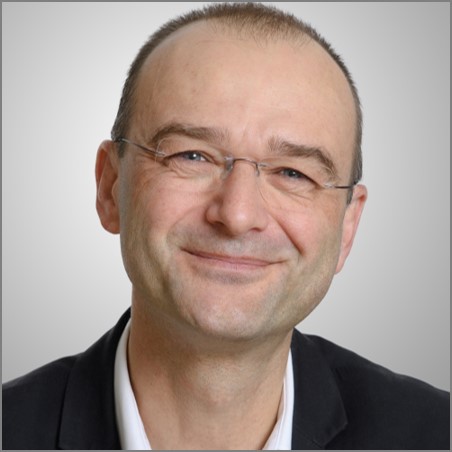
Tobias Moser, MD
Prof. Dr. Tobias Moser is a neuroscientist, otologist, and audiologist at the Göttingen Campus in Germany. He heads the Institute for Auditory Neuroscience at the University Medical Center Göttingen and leads research groups at the German Primate Center and the Max-Planck-Institutes for Biophysical Chemistry and Experimental Medicine. His main areas of research are synaptic coding and processing of auditory information as well as innovative approaches to the restoration of hearing in the deaf such as the optogenetic cochlear implant.
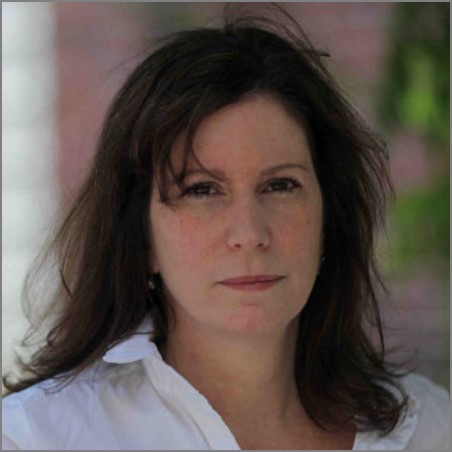
Sheila Nirenberg, PhD
Sheila Nirenberg is the Nanette Laitman Professor of Neurology and Neuroscience at the Weill Medical College of Cornell University and the founder of two start up companies – one that develops new kinds of prosthetic devices, and one that develops new kinds of smart robots. Her lab at the university focuses on basic science, and her companies take what’s learned in the lab and use it to develop solutions to real world problems. She’s won numerous awards for innovative research, including a MacArthur “genius” Award. Her work on cracking the neural code of the retina (the code the retina uses to communicate with the brain) has been featured in TED talks, a BBC documentary, a PBS documentary, the Discovery Channel, Scientific American, as well as many peer-reviewed publications.
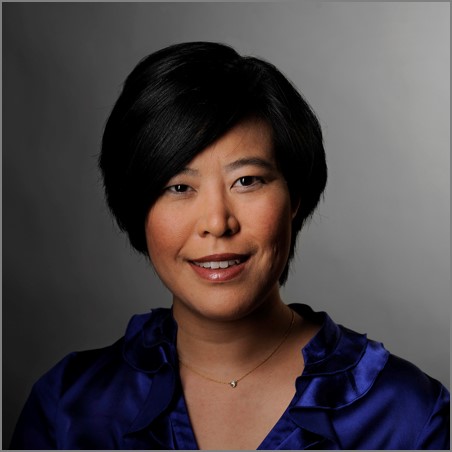
Clare Ozawa, PhD
Clare is a managing director at Versant Ventures with a focus on investments in San Diego and the Bay Area. Previously, Clare was COO of Inception Therapeutics, where she assumed leadership roles in the creation and management of six new companies launched in partnership with academic researchers and major biopharmaceutical companies.
Before joining Inception, she was an investment professional at Versant, where she was involved in several successful investments including Flexion, Biotie, and Quanticel. She joined Versant from Novartis Pharma, where she worked in the Office of the CEO leading strategic initiatives for the Novartis Pharma Executive Committee.
Previously, Clare was at McKinsey & Company where she advised clients across the biopharmaceutical sector. Clare earned a Bachelor of Science degree in biological sciences with honors and distinction from Stanford University, and a Ph.D. in neurosciences from Stanford University Medical School.
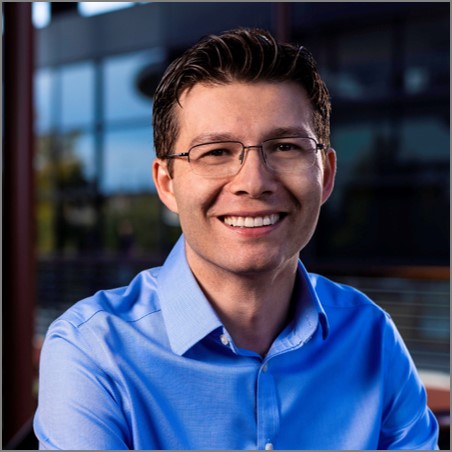
Sergiu Pasca, MD
Dr Sergiu Pasca is an Associate Professor of Psychiatry at Stanford University and the Bonnie Uytengsu and Family Director of Stanford Brain Organogenesis. A physician by training, he is interested in understanding the rules governing human brain assembly and the mechanisms of disease. His laboratory introduced instructive signals for reproducibly deriving self-organizing brain region-specific spheroids/organoids and pioneered a modular platform known as assembloids to study migration and neural circuit formation. Dr Pasca applied these cellular models to gain insights into human physiology, evolution and disease, and supported researchers around the world in implementing these techniques. Dr Pasca was named a Visionary in Medicine and Science by the New York Times. He is the recipient of the Vilcek Award for Creative Biomedical Promise,the A.E. Bennett Award in Biological Psychiatry, the D.E. Efron Award and the J. Altman Award in Developmental Neuroscience.
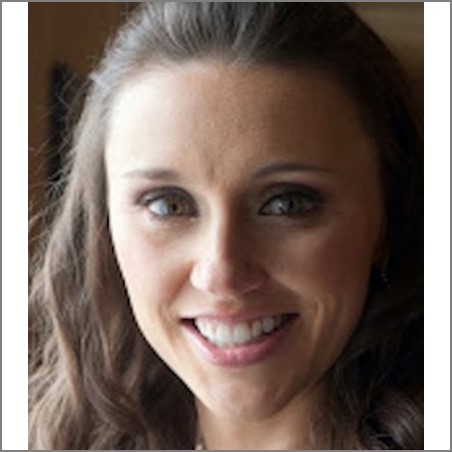
Nicole Paulk, PhD
Dr. Nicole Paulk is an Assistant Professor of AAV Gene Therapy in the UCSF Department of Biochemistry & Biophysics in San Francisco. Dr. Paulk has a BS in Medical Microbiology, a PhD in AAV Gene Therapy and Regenerative Hepatology from OHSU with Dr. Markus Grompe, and completed her Postdoctoral Fellowship in Human Gene Therapy with Dr. Mark Kay at Stanford University. She is a pioneer in the development of next-generation AAV gene delivery platforms and has engineered payloads for gene repair and gene transfer for numerous rare diseases, utilized directed evolution to evolve capsid serotypes with novel tropisms, and has applied comparative proteomic and epigenomic approaches to interrogate challenges in vector manufacturing. Dr. Paulk’s translational research lab at UCSF develops solutions for the biggest problems in gene therapy: cost, delivery and efficacy, with a focus on treatments for rare diseases and cancer.
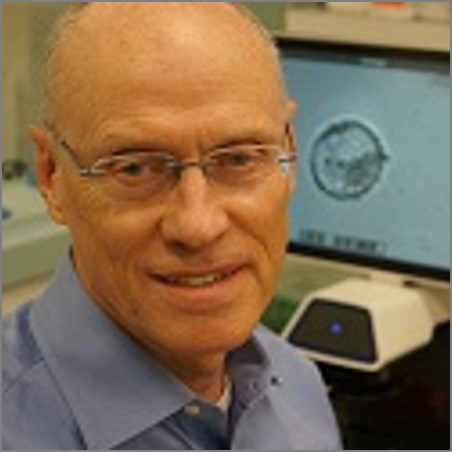
Jim Pickel, PhD
Dr. James Pickel established and is the chief of the NIMH Transgenic Core, which produces transgenic animals for neuroscience research. He completed his Ph.D. work with Dr. Max Cooper at the University of Alabama in Birmingham where he studied the development of stem cells and precursors of the immune system. He helped define two hallmarks of lymphocyte development: the rearrangements of immunoglobulin and T-cell receptor genes and the expression of proteins that guide stem cells to developmental niches. His interest in stem cell development led him to begin work on neural stem cells during a postdoctoral fellowship with Ron MacKay at NIH. Those studies focused on transcription control that established the neural stem cell state using transient transgenic mice. Since then, he has developed germline and transient transgenic marmosets in the NIMH transgenic core. Before beginning his scientific career he earned an AB in English literature from The College of William and Mary and attended the International School, Bangkok.
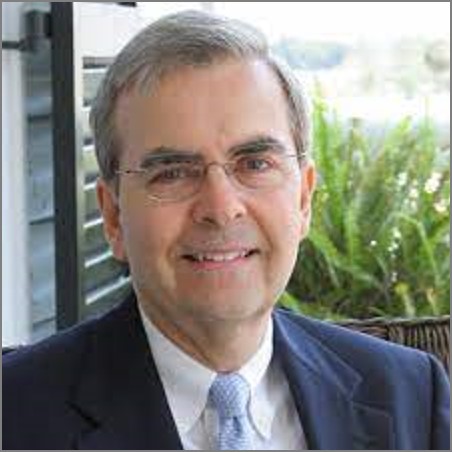
Bill Podd, JD
William Podd is the Executive Director of Landmark Angels (a national, private angel group), President & CEO of Landmark Capital (a boutique advisory and consulting firm founded in 1993 and based in Greenwich, CT), and President of the Landmark Family Office (an investment alliance of prominent US and international Family Offices).
Prior to founding Landmark Capital, Bill completed more than $3 billion in financings as a corporate finance banker and lawyer at major law firms in NYC and at Lehman Brothers where he specialized in both municipal and corporate finance.
He also served as president of an early stage enterprise software company whose technology was developed at The Draper Laboratory at M.I.T. Bill is a frequent speaker and panelist on family office, private equity and venture capital topics.
A Phi Beta Kappa, summa cum laude graduate of The University of Notre Dame, he received his J.D. degree from the University of Virginia School of Law.
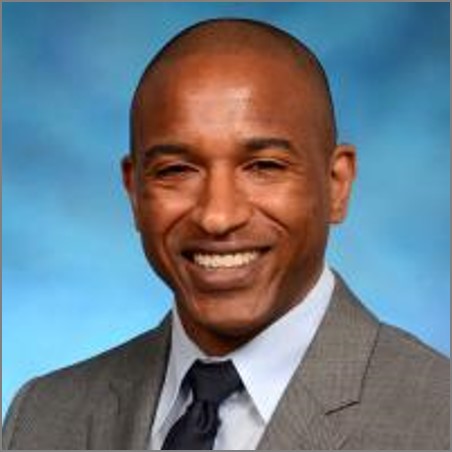
Ryan Richardson, PhD
Dr. Ryan Richardson recently joined the Office of the BRAIN Director as a member of this year’s class of AAAS Science & Technology Policy Fellows. With over 15 years in life sciences research, Dr. Richardson has significant expertise across a wide range of therapeutic areas and career perspectives. He earned his Ph.D. in Biochemistry from Harvard University using synthetic biology to explore the dynamics of cellular responses to viral invasion and to develop novel genetic circuits that enable lower-cost biologic production. As a postdoctoral fellow and T32 trainee in Cancer Biology at the University of Maryland Baltimore, Dr. Richardson applied similar engineering and design principles to develop new genetic tools to investigate the parallels between neuronal circuit formation and tumor invasiveness. Beyond the bench, Dr. Richardson is interested in business development as a way to impart a greater, more positive impact on the lives of patients and their families. He has also demonstrated a firm and continuing commitment to science education, outreach, and mentorship, having engaged with multiple communities through variety of roles, from teaching undergraduates in a molecular biology course, to tutoring AP biology, and mentoring high schoolers interested in health sciences. He has also worked with students internationally, leading practica in high school biology in China and a synthetic biology workshop for college students in Mexico.

Botond Roska, MD, PhD
Botond Roska was elected as a member of the European Molecular Biology Organization (EMBO) in 2011 and the Academia Europaea in 2020. He has received several awards, including the Viva Award in 2010, the Alcon Award in 2011, the Alfred Vogt Award in 2013, the Cogan Award in 2016, the Bressler Prize and the Alden W. Spencer Award in 2018, the Louis-Jeantet Prize for Medicine, the Cloëtta Prize, the Semmelweis Budapest Award in 2019, the Körber European Science Prize and the Greenberg End Blindness Visionary Prize in 2020.
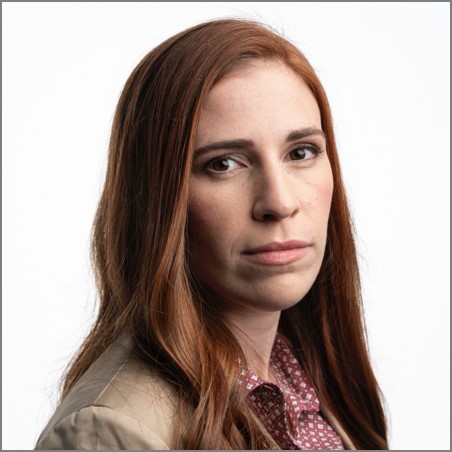
Kaitlyn Sadtler, PhD
Dr. Kaitlyn Sadtler is a principal investigator at the National Institutes of Health outside of Washington, DC, USA. She received her BS at UMBC, and her PhD at Johns Hopkins School of Medicine, where her thesis research on the role of the immune system in muscle regeneration was published in the prestigious Science magazine. She continued to MIT where she completed her postdoctoral fellowship with Dr. Robert Langer, co-founder of Moderna, working on medical device development and immune responses to nanoparticle drug delivery systems. There she was awarded a TED Fellowship and named to the Forbes 30 Under 30 List in Science. Dr. Sadtler was recruited to the NIH as the first female principal investigator in the main engineering institute where she launched her lab during the COVID-19 pandemic. Pivoting to use her lab’s expertise in immunology, in collaboration with others at the NIH, she helped launch a study that detected almost 17 million undiagnosed SARS-CoV-2 infections after the first wave of the pandemic in the US. This has led to further studies on vaccination, evaluating antibody responses in healthy patients and those with immunodeficiencies and autoimmune disorders. She was the only junior investigator on the leadership board for the COVID19 interest group at the NIH, and has been awarded the JHU Young Alumni Award, an NIH Special Act or Service Award, and was invited to participate in the National Academy of Engineering Frontiers of Engineering symposium.
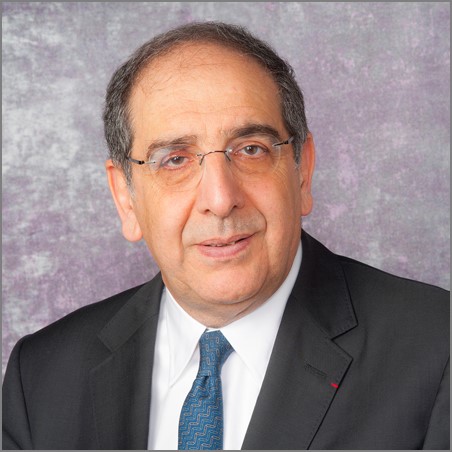
Jose-Alain Sahel, MD
Dr. José-Alain Sahel is a Distinguished Professor and the Eye and Ear Foundation Endowed Chair of the Department of Ophthalmology University of Pittsburgh School of Medicine as well as an Exceptional Class Professor of Ophthalmology at the Sorbonne Université in Paris. He is the Director of the UPMC Eye Center, UPMC. Dr. Sahel received his medical degree from Paris University School of Medicine. He then completed an ophthalmology residency at the A. de Rothschild Ophthalmology Foundation in Paris, and at the Louis Pasteur University Hospital in Strasbourg France, where he also performed a clinical fellowship. He performed a fellowship at Massachusetts Eye and Ear Infirmary, Boston, MA and was a visiting Scholar at Harvard University. He was the Cumberlege Professor of Biomedical Sciences at the Institute of Ophthalmology, University College London. Dr. Sahel founded and still leads the Institut de la Vision in Paris and is a pioneer in the field of vision restoration therapies. He authored over 40 patents and 600 peer-reviewed publications. He co-founded several start-up companies. He is a member of the French and German National Academies of Sciences.

Rachel Salzman, DVM
Dr. Rachel Salzman is the Founder of UltraSquared Bio, a gene therapy initiative created to develop medicines for ultra-rare patient populations where threshold business cases cannot be generated due to exceedingly sparse epidemiology. UltraSquared is designed to be a fully sustainable drug development company owned by a non-profit shareholder. In 2017 Rachel co-founded SwanBio Therapeutics and served as CEO through 2019, followed by heading up Portfolio Development until 2021. SwanBio is an AAV gene therapy company focused on developing treatments for patients with serious neurological diseases, with a lead program in adrenomyeloneuropathy, the adult manifestation of X-linked adrenoleukodystrophy (ALD).
Prior to her time at SwanBio, Dr. Salzman was Chief Science Officer of The Stop ALD Foundation (SALD) since 2001. SALD is a non-profit Medical Research Organization dedicated to employing entrepreneurial approaches and innovative methodology for advancing effective therapies, cures, and prevention of ALD, an often-fatal neurodegenerative disease. As CSO at SALD she made critical contributions in driving forward the world’s first ex-vivo lentiviral gene therapy clinical trial conducted in non-HIV infected patients. This program enabled the subsequent successful establishment of a public gene therapy company.
Dr. Salzman has been an active member of the American Society of Gene & Cell Therapy (ASGCT) for 20 years, and has served in a leadership capacity on the Board of Directors along with multiple committees and task forces. Rachel’s contributions were recognized when she received the Sonia Skarlatos Public Service Award in 2015. She currently represents ASGCT at the National Academies of Science, Engineering and Medicine’s Forum on Regenerative Medicine. Earlier this year Rachel was selected to be a Henri Termeer Fellow by the Termeer Foundation.
Dr. Salzman earned her Doctor of Veterinary Medicine Degree from Oklahoma State University and was in large animal practice until ALD manifested in her own family. This seismic event was what catalyzed her career shift from horses to humans.
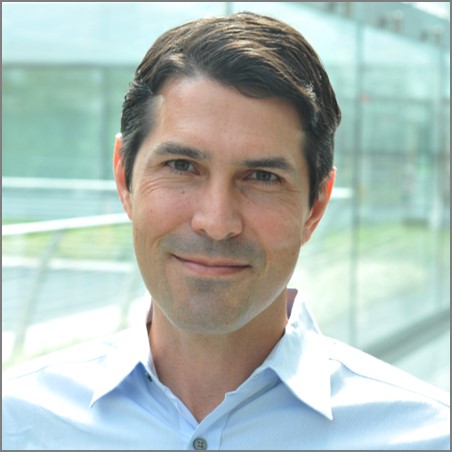
Scott Sternson, PhD
Scott Sternson is an Investigator with the Howard Hughes Medical Institute at Janelia Research Campus and Professor at the University of California San Diego. He is interested in the molecular control over nervous system function. His laboratory uses electrophysiology, deep-brain calcium imaging, molecular genetics, transcriptomics, and single molecule RNA-FISH to study neural circuits. His research is primarily focused on a reductionist approach to understand how hunger alters neural signaling to influence motivated behaviors. The ultimate goal of these investigations has been to identify strategies and molecular targets for controlling appetite for combatting the high rates of obesity worldwide. The laboratory also combines chemical synthesis and molecular genetics to create chemogenetic tools, which are used to control cellular activity and are under development as potential therapeutics for intractable neurological diseases.
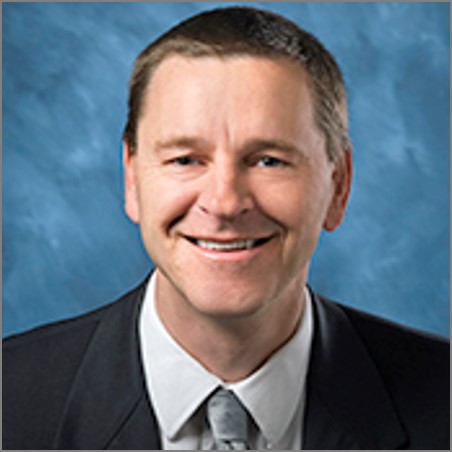
Clive Svendsen, PhD
Dr. Clive Svendsen did his predoctoral training at Harvard University. He received his PhD from the University of Cambridge in England, where he subsequently became a Welcome Fellow and established a laboratory focusing on stem cell research. He then moved to the University of Wisconsin in 2000 as Professor of Neurology and Anatomy and founded their Stem Cell and Regenerative Medicine Center. In 2010, he moved to Los Angeles and founded the Cedars-Sinai Board of Governors Regenerative Medicine Institute (RMI), which currently has 23 faculty members and over 120 staff. A main focus of the Institute is to both model and treat various human diseases with the use of induced pluripotent stem cells (or iPSCs), which are adult human cells taken back in time to a young stem cell state capable of making any tissue of the human body. At the heart of the RMI is the Cedars-Sinai Biomanufacturing Center which manufactures iPSCs and other cell types for research purposes and clinical trials. Additionally, Dr. Svendsen maintains a large lab that focuses on modeling neurodegenerative diseases including Spinal Muscular Atrophy and Amyotrophic Lateral Sclerosis (ALS), as well as Huntington’s, Parkinson’s and Alzheimer’s Disease. Using “organ on chip” technology that combines stem cells and engineering, Dr. Svendsen is creating multicellular human systems for research and drug development. He has received many recognitions for this work, including a recent feature on the front cover of National Geographic as “The Future of Medicine”. The other focus of his lab involves cutting-edge clinical trials using combinations of stem cells and growth factors. He spearheaded one of the first clinical trials to deliver a growth factor (GDNF) to patients with Parkinson’s Disease, and is currently working closely with neurosurgeons, neurologists and other scientists to develop novel ways of using stem cells modified to release GDNF for Parkinson’s patients. He is also finding ways to use stem cells for other neurological diseases such as Huntington’s and Alzheimer’s Disease, and is leading a new clinical trial using stem cells to treat an incurable eye disease Retinitis Pigmentosa. Finally, Dr. Svendsen has a long-standing interest in ALS and he was the Sponsor of the first-ever clinical trial delivering stem cells and GDNF to patients that was recently completed at Cedars-Sinai.

Holly Tabor, PhD
Holly Tabor, PhD, is Associate Professor of Medicine at Stanford University. She is the Associate Director for Clinical Ethics and Education for the Stanford Center for Biomedical Ethics (SCBE) and is Co-Chair of the Ethics Committees at Stanford Hospital and Lucile Packard Children’s Hospital. Her research focuses on ethical issues in genetics and genomics, specifically return of results and translation for exome and whole genome sequencing. She received her PhD in Epidemiology from Stanford in 2002, and then was a Senior Scientist at the Stanford Human Genome Center. From 2005-2008 she was one of the first postdoctoral fellows at CIRGE/SCBE. Prior to her work at SCBE she spent eight years at the Treuman Katz Center for Pediatric Bioethics at Seattle Children’s Research Institute and at the University of Washington.
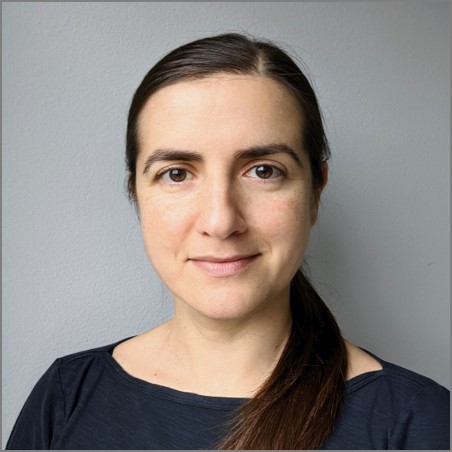
Bosiljka Tasic, PhD
Bosiljka Tasic joined the Allen Institute for Brain Science in Seattle in late 2011, where she is currently the Director of Molecular Genetics. There, she leads an effort toward comprehensive molecular analysis of neuronal identity in the mouse brain. She is also interested in integrative cellular phenotyping, where different cellular properties (e.g. molecular, physiological, and morphological) are obtained for single cells and used to derive multimodal cell-type taxonomies. She has a long-standing interest in the development of novel genetic tools to enable access to specific cell populations for their functional characterization. Recently, her team at Allen developed an approach for the discovery and utilization of enhancers to design recombinant adeno-associated viruses with cell class- or type-targeted transgene expression. Before joining the Allen Institute, Bosiljka completed her postdoctoral training with Liqun Luo at Stanford University, obtained her Ph.D. with Tom Maniatis at Harvard University, and received a Bachelor’s degree from the University of Belgrade, Serbia.
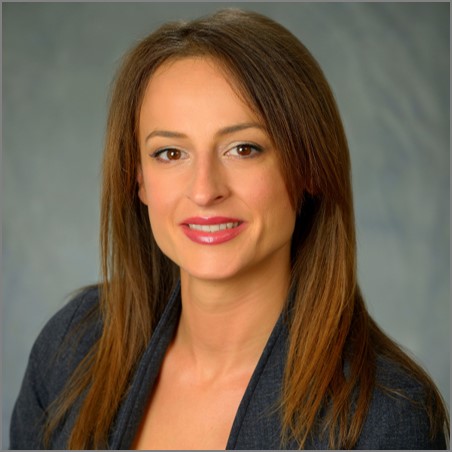
Flavia Vitale, PhD
Dr. Flavia Vitale, Ph.D. is an Assistant Professor in the Department of Neurology at Penn. She also holds appointments in the Departments of Bioengineering, Physical Medicine & Rehabilitation and is a core faculty member of the Center for Neuroengineering and Therapeutics, the Brain Science, Translation, Innovation, and Modulation Center at Penn and of the Center of Neurotrauma, Neurodegeneration & Restoration at the Philadelphia VA. Dr. Vitale earned her B.S. and M.S. in Biomedical Engineering at the Università Campus Biomedico di Roma in 2008, and in 2012 she received her Ph.D. in Chemical Engineering at the Università di Roma “La Sapienza”. She completed a postdoctoral training in Chemical Engineering at Rice University, a neuroengineering research training at the Penn, and in 2018 she joined the Penn faculty. Dr. Vitale’s research interests are in the area of novel materials and devices for studying, diagnosing and treating disorders of the nervous and neuromuscular systems. Dr. Vitale has received several awards recognizing her research achievements, including the Taking Flight Award from Citizens United for Research in Epilepsy, the McCabe Fellow and Linda Pechenik Investigator Awards from the University of Pennsylvania, and the K12 Interdisciplinary Rehabilitation Engineering Career Development Award from the NICHD.
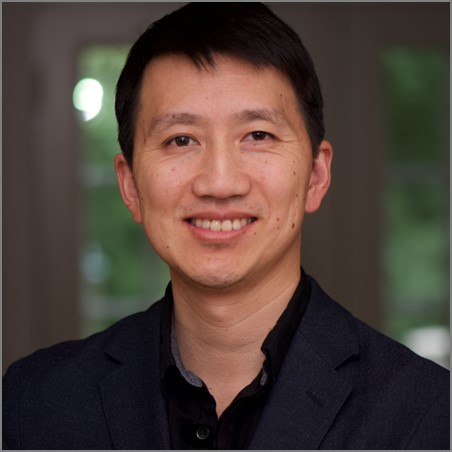
Timothy Yu, MD, PhD
Dr. Yu is a neurogeneticist at Boston Children’s Hospital and Harvard Medical School. His research group works at the intersection of genomics, neurobiology, and bioinformatics, applying these tools to understand (and treat) rare pediatric neurologic diseases.
Autism genetics and neurobiology: Dr. Yu’s team applies exome and genome sequencing to study large cohorts of children with autism spectrum disorder, with the aim of uncovering discovering new mechanistic insights into its pathogenesis. One focus is the study of ‘human gene knockouts’ — recessive mutations that lead to complete loss of function the impacted gene – which they have shown to be an underappreciated cause of autism. Dr. Yu’s work has helped illuminate new neurobiological pathways in autism pathogenesis including serotonergic development, axon guidance and interhemispheric brain connectivity, and cholesterol biosynthesis.

